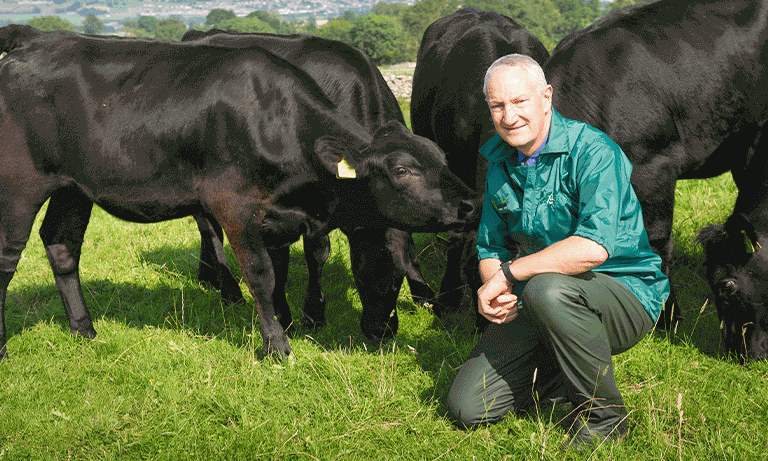The veterinary voice for animal welfare: reflecting on BVA’s updated Animal Welfare Strategy
11 Jul 2025
07 Sep 2022 | David Black
Veterinary professionals, sitting at the very intersection of human, animal and environmental health, are better positioned than most to influence and advocate for change. David Black, Director of Vet Sustain and an RCVS specialist in cattle health and production explains why vets have an important role to play.

We are ever more aware of the multitude of complex and pressing sustainability challenges facing us, including climate change, biodiversity collapse, antimicrobial resistance, health epidemics, social inequality and animal wellbeing concerns. Yet veterinary professionals, sitting as we do at the very intersection of human, animal and environmental health, are better positioned than most to influence and advocate for change.
As a rural vet, I like many initially wondered what difference I could make when the problem was so vast, and developing countries were showing no appetite to reduce fossil fuel emissions. But as the body of evidence grows and I learn more, and I think more about the issues, I have come to realise how fortunate I am in that there is so much I can do.
At a personal and family level there are many aspects of sustainability for citizens to consider, and these may be cultural, ethical or moral choices, but always remembering that if all of us make small changes these will add up to a significant impact. I for one fully support the BVA UK Sustainable Animal Agriculture Policy which states that “the veterinary profession should promote the concept of "less and better", in which people reduce their consumption of animal-derived products whilst maintaining proportional spend to buy better, higher quality goods” and thereby continue to support the rural economy.
As vet-led businesses we tend to be embedded within communities, particularly those of us in rural practices. So not only can we continue on our own journeys towards sustainability, we can try to inspire those around us. Consider;
The average individual human carbon footprint in the UK is 13.4 tonnes of carbon dioxide equivalent (CO2e) per year, which we can clearly influence. But consider the carbon footprint of the animals under our care – Table 1.

Prentis, A. Carbon Footprint of the animals under our care, Veterinary Practice, 1st March 2021 online version.
For me, this is where the main advocacy opportunity arises. Clearly, we do not have direct control over the husbandry or management of the animals under our care, but as advisors and advocates we can influence their health and wellbeing and support their owners to make more sustainable choices – and this opportunity to impact on carbon footprints potentially dwarfs any changes we can make in our personal lives.
If we think specifically about how we can influence the agricultural sector, I feel this is about efficiency – no system is right or wrong, but every one can be more efficient. So, we need to:
I feel we as veterinary professionals should feel empowered and inspired to engage with sustainability: to be able to lead by example and with an evidence base, for the future of our planet and to ensure ongoing provision of outstanding veterinary care.
Vet Sustain have many free resources including The Greener Veterinary Practice checklist, which highlights simple steps to embed sustainability into clinical practice, and Case studies in UK and NZ on Sustainability in Farm Practice.
Most recently Vet Sustain in partnership with VetSalus have created a 10-module, self-paced, online learning course entitled “A veterinary approach to sustainable food and farming".
Get tailored news in your inbox and online, plus access to our journals, resources and support services, join the BVA.
Join Us Today